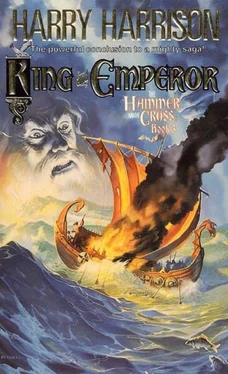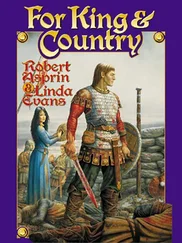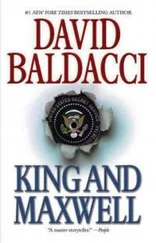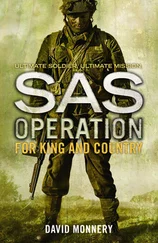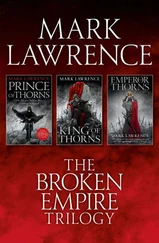Steelmaster Udd had dealt with that by insisting that metal could do what wood could not. Weak keels needed more bracing, that was all. In the end a combined system of bronze bolts—for even Udd had had to admit that salt water was death to the strongest steel—and massive riveted wooden ribs had strengthened the combination keels even to Atlantic levels. At last seaworthy, decked all over, mounting swiveling onagers fore and aft, with heavy crossbows lining each gunwale, the new ships of the navy of the co-kings had immediately closed the English Channel to all ships without their majesties' license. Trade from Frisia to the Loire moved only on their sufferance. Tolls on trade paid the ships' crews. And without a Viking ship at sea from end to end of the Atlantic coast, trade doubled and redoubled. The Andalusian ship, rowing slowly in the end into the port of London, found a scene of activity that might almost have been the Guadalquivir, for business if not in sheer population.
At least they had had no trouble in gaining attention. As soon as the port-reeve who came aboard had grasped that these men sought audience with his master, and that they could pay in bright gold dirhams, he had provided the embassy with horses—poor scrubs of animals, Ghaniya noticed with contempt and a certain relief—with a guide and escort, and set them firmly on their way up the road that led North to the king's capital of Stamford.
As the party rode on, Ghaniya's anxiety nevertheless increased. To a son of the Quraysh, nothing that barbarians did could seem wholly admirable, but Ghaniya was intelligent enough to read the signs. He would not exchange his own cotton for the animal fabrics that the natives wore. Yet he could feel soon enough how inadequate his cotton was for the continuous winds and the everlasting rain. He saw, too, how the mere peasants laboring in the fields did so in stout wool. The food they ate was such as the dogs of Cordova would turn from in disgust, black bread and pigs' fat, soured cows' milk and sharp biting vegetables that filled the breath. Yet they seemed to have plenty of it. He saw no pinched faces, no hands outstretched for alms.
By the side of the road, too, again and again he saw the wheels turning. The first two or three he came to, he turned from with a smile of patronage on his face. They were like the norias of his homeland, only the unfortunate barbarians used them not to lift water but to grind their corn; and they did so by putting the wheels in the slow-moving water and taking what force they could get from that. The fourth mill they saw, however, turned Ghaniya's smile to a frown. Here the natives had realized their error, had taken advantage of a slope to direct the water-channel above the wheel, so that it was driven by the full weight of falling water, not flowing water. And from inside the mill came not the harsh grinding of the corn-mill but the continuous Iblis-clash of a triphammer forging iron. It was not a thought Ghaniya could readily frame, but at the back of his mind lurked the suspicion that while the barbarians had clearly been no better than he thought them a short while ago, in a few years they seemed to have made more changes than had taken place under as many caliphs as could be remembered.
Nor did Ghaniya like the stories passed on to him about the strange king responsible for all this. It was good that he was no Christian. It was acceptable that he did not persecute Christians: no more did the great er-Rahman himself, preferring to tax them instead as he could not tax believers. It was impossible that any should believe that he was the Son of God, another Yeshua returned. Even worse, it might be, that he was not the son of the One God in whom Christian and Moslem alike believed, but of some barbarian godlet, one among many. Ghaniya felt the horror of the monotheist for the idol-worshiper.
Tempered still with fear: one day on the road they had heard terrible screeching coming towards them, and then seen on the road five hundred men marching together, bagpipers at their head and the banner floating over them of the smith's hammer. No Christian cross with it, for these were men of the Way, their alliance with the Christian Alfred no longer signaled. Ghaniya, drawing his horse aside, had marked their weapons: the usual metal-clad foot-soldiers of the ferengis , strong men with swords and axes, but pitifully slow to move, but with them others, small men mostly with strange heavy bows over their shoulders, and trailing the column a dozen contrivances pulled by mules, objects of rope and wood. Dart-throwers, his guide declared, or stone-throwers, catapults that could batter down any wall, pierce any armor or shielding. Ghaniya scowled most of all at the cheerful faces and the constant chatter from the marching men. These men possessed something he understood: iqbal , the expectation of success that breeds success.
And yet when he came to the town they called the capital, Ghaniya felt his sense of disdain and superiority rise again like the flesh of a caliph in his harem. The town would not have ranked as a suburb of Cordova. Its stone tower was new and well-made, but low and single. The marketplace itself had fewer men in it than a courtyard of his master. From one end of the town he could see the other! Instead of the crowd of suppliants being ranked and listed by chamberlains, one man came out to meet them, and made no pretense that his master was too busy to receive any visitor. Surely the master of such a place could feel only honor at being offered an alliance with the Caliph of Cordova, Successor of the Prophet, Deputy of Allah on Earth!
Ghaniya felt confidence again as he prepared for his audience with the master of the men and of the ships. He must impress them, he reflected, with his own wealth and with the learning of Mu'atiyah, neither of which, he was sure, the barbarians could match. It troubled him only that in this far land he must rely, for a translator, on the skills of Suleiman the Jew.
“What's a Jew?” muttered Shef out of the corner of his mouth. The embassy of strangers stood in front of him in his great chamber of audience, one of their party—not the leader, but the spokesman—standing in front of the others. He had just introduced himself, but the word he used meant nothing to Shef.
The advisers who stood behind him conferred briefly. Then, as Shef's own translator Father Boniface began again to put the other's credentials into English, Skaldfinn priest of Heimdall stepped forward. A linguist and interpreter, he knew all there was to be known in the North about foreign peoples.
“The Jews are the people from the East who crucified the Christian god,” he said. “Apparently there are still some of them left.”
“It was the Romans who crucified Christ,” said Shef. “German soldiers from a Roman legion.” He spoke with flat certainty, as if he had seen the event himself.
“The Christians prefer to blame the Jews.”
“And these other folk, the ones in long thin robes. What do they believe?”
“We call them Mohammedans. They believe in a prophet who arose some time before ours. Their God and the Christian God seem much the same, but they do not believe in the Christ as divine, and the Christians will not accept their prophet even as a prophet. There is always war between the Mohammedan kingdoms and the Christian ones. Yet the Mohammedans accept Christian subjects, and Jewish subjects, and treat them fairly.”
“Like us, then.”
“Yes: except—”
“Except what?” Shef was still listening with half an ear to Boniface's long translation of what seemed the Jewish spokesman's excessively flowery string of opening compliments.
“Except that they regard all three, Mohammedan, Jew and Christian, as ‘People of the Book.’ They do not regard any others as sharing the same God, as these three religions do, even if they have different beliefs.”
Читать дальше
